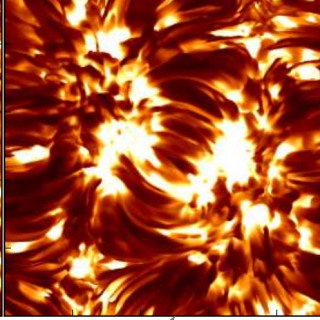Bibcode
Beck, C.; Rezaei, R.; Choudhary, D. P.; Gosain, S.; Tritschler, A.; Louis, R. E.
Bibliographical reference
Solar Physics, Volume 293, Issue 2, article id. #36, 24 pp.
Advertised on:
2
2018
Journal
Citations
5
Refereed citations
5
Description
High-resolution imaging spectroscopy in solar physics has relied on
Fabry-Pérot interferometers (FPIs) in recent years. FPI systems,
however, become technically challenging and expensive for telescopes
larger than the 1 m class. A conventional slit spectrograph with a
diffraction-limited performance over a large field of view (FOV) can be
built at much lower cost and effort. It can be converted into an imaging
spectro(polari)meter using the concept of a subtractive double pass
(SDP). We demonstrate that an SDP system can reach a similar performance
as FPI-based systems with a high spatial and moderate spectral
resolution across a FOV of 100^'' ×100^' ' with a spectral
coverage of 1 nm. We use Hα spectra taken with an SDP system at
the Dunn Solar Telescope and complementary full-disc data to infer the
properties of small-scale superpenumbral filaments. We find that the
majority of all filaments end in patches of opposite-polarity fields.
The internal fine-structure in the line-core intensity of Hα at
spatial scales of about 0.5'' exceeds that in other parameters such as
the line width, indicating small-scale opacity effects in a larger-scale
structure with common properties. We conclude that SDP systems in
combination with (multi-conjugate) adaptive optics are a valid
alternative to FPI systems when high spatial resolution and a large FOV
are required. They can also reach a cadence that is comparable to that
of FPI systems, while providing a much larger spectral range and a
simultaneous multi-line capability.
Related projects

Magnetism, Polarization and Radiative Transfer in Astrophysics
Magnetic fields pervade all astrophysical plasmas and govern most of the variability in the Universe at intermediate time scales. They are present in stars across the whole Hertzsprung-Russell diagram, in galaxies, and even perhaps in the intergalactic medium. Polarized light provides the most reliable source of information at our disposal for the
Ernest
Alsina Ballester